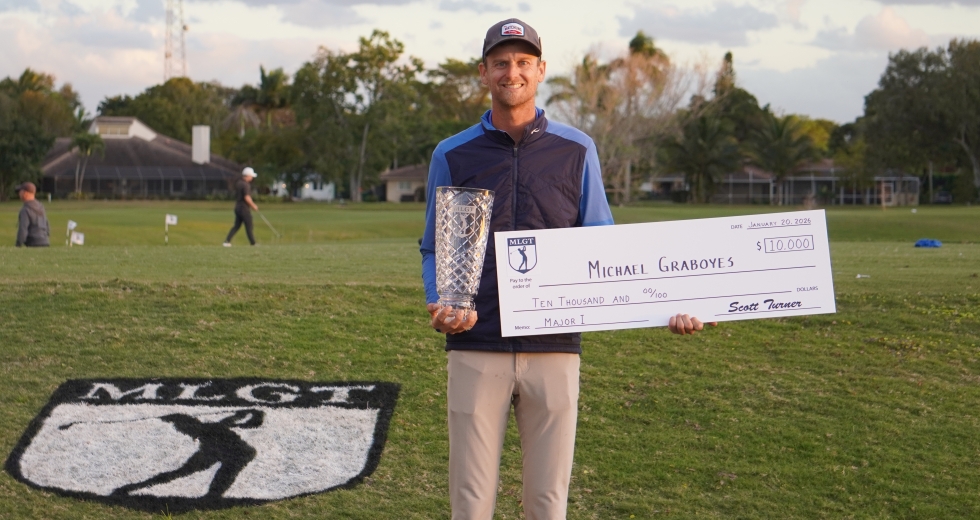The faded white binder that sits on Michael Feuerstein's desk has remained closed, and the letters inside remain mostly unread. It has been almost nine years since family and friends wrote those letters. Despite the passage of time, Feuerstein still can't bring himself to read them. "It's too hard," he told me.
The letters, all typed, are dated Nov. 8, 2016. That’s the day his friends and family staged an intervention.
Feuerstein’s dad, Elliot, read his letter first. When I asked Michael about the contents of the letter, there was a long pause. After taking a moment to collect his thoughts, he said, "It was just heartbreaking."
When someone finishes answering a question, my mentor, Michael Bamberger, taught me to let the silence hang for a second, in the hope the person might add something. Feuerstein is energetic and never short for words, but when discussing the letter from his father, he was subdued and soft-spoken. After one of those pauses, he added, "Just a lot of heartbreak." Nine years hadn't dulled the biting sharpness of his father's words.
After Elliot shared his letter, Michael agreed to enter rehab, mainly because he didn’t want to listen to what the others who were in the room on that November morning had written. Those letters remain in the binder on his desk, a stark reminder of not only a past life, but also a motivator to stay sober as he chases status on the PGA Tour..
Eight days ago, Feuerstein shot a 62 to qualify for his second career PGA Tour event, at the 3M Championship.
Feuerstein isn't your typical Monday Q player. He is 41, considerably above the average age of most players on the Monday Q grind. He doesn't hit it far in today's bomb-and-gouge era, and he's a recovering alcoholic.
A San Diego native who was an outstanding junior player, he headed to Colorado on a golf scholarship more than two decades ago. That is when the drinking began, although he didn't believe it became a problem until his senior year. At the beginning of the season, there was a tryout for the team, and although Feuerstein participated, he didn't consider it a tryout. He had been a member of the team for the previous two years, after all, and had made significant contributions.
"I showed up hungover each day and shot like 80 every round," Feuerstein recalls. When the coach circulated an email announcing the members of the team, his name wasn’t on it. He was angry and stunned. Looking back, he acknowledges, it shouldn’t have come as a surprise. Although he stayed and earned a degree, his senior year without the golf team was a tough one.
After college, Feuerstein turned pro, playing mainly on the Golden State and Tarheel tours with limited success. It's hard to compete while drinking heavily most nights.
After a few years of poor results, Feuerstein stopped playing professionally, went to work for his family business, and eventually regained his amateur status. Yet one constant remained: the drinking.
In November 2016, things finally came to a head. Feuerstein had played the previous three days in the Southern California Four-Ball. He and his partner had finished "third or fourth" despite both drinking heavily. "I was basically drunk for three days," he says.
After the tournament, Elliot Feuerstein paid a visit to his son’s house. The two spoke about the tournament, a common practice, but the father didn’t leave before saying, "Come up to the house tomorrow at 10 a.m."
"The way he said it, I knew something was up," Feuerstein says. The next morning, he walked into his parents' home and directly into an intervention. In addition to the interventionist, Michael's parents, his brother Brett, whom Michael calls his best friend, Brett's wife, Carly, and just one friend were there. It made Feuerstein face the stark reality that most of his friendships at the time were centered around drinking.
Michael cut off the group after his dad read his letter. He agreed to therapy and the interventionist took him to pack. “They don’t give you a chance to change your mind,” he told me. Just two hours later, Feuerstein found himself at Casa Palmera, an inpatient rehab center in Del Mar, Calif. "I was just so tired,” he says, “tired of lying, tired of pretending I was fine."
In his first group therapy class, Feuerstein, not one to show his emotions, broke down, crying for five minutes in front of strangers he had just met. I just kept saying, "How did it get to this?"
Brett picked up his brother and best friend from the rehab center 30 days later. They drove to a shopping mall. It was the Christmas season, and a horde of kids was running around screaming. Brett turned to Michael and said with a laugh, "Want me to take you back to rehab?"
For the next 30 days, Feuerstein attended Casa Palmero's outpatient program. And he played a lot of golf. It was something he hadn't done sober or hungover much for a good portion of his adult life. It rekindled his love for the game.
Sixty days after his intervention, Michael Feuerstein turned pro for the second time. Only this time he was sober.
Golf became his purpose. His outlet. In many ways, it helped save his life.
It's a life that now includes his wife, Andrea, whom he started dating soon after getting sober, and Frankie, their 2-year-old daughter. Becoming a parent has made him reflect on what his parents must have felt before he got sober. "I can't imagine what it's like to watch your own child slowly kill himself," he says.
Refreshed and reenergized, Feuerstein returned to the Golden State Tour. He has held at least conditional status on Latin America or Korn Ferry tours since 2018.
In 2019, his game started to improve even more when he met Phil Mickelson through a mutual friend. Michael and Phil became fast friends, and when both are home in San Diego, they play together three to five times a week.
"Michael has improved every year, works hard, and is a wonderful person,” Mickelson said last week from England. “I am so happy he got through Monday."
Feuerstein credits Mickelson with being a big part of his improvement over the last few years, saying, "I'm lucky to call him a friend and mentor." He adds it means a great deal to him that if the two are playing together and others in the group are drinking, Mickelson won't join in.
Unfortunately, the week in Minnesota didn't go as hoped for Feuerstein, as he shot 77-69 and missed the cut. But it didn't dampen his spirits. He mentioned warming up next to Adam Scott and expressed his desire to play more PGA Tour events.
In a few weeks, he will head back to the Hotel Planners Tour (the DP World Tour’s version of the Korn Ferry Tour), where he has made four of six cuts this season. Q school season is approaching quickly, and Fury, as he is known, hopes to capture the magic of two years ago when he advanced through all three stages to earn his Korn Ferry card.
When we spoke recently, he told me, "I was unpacking today and I thought about getting that binder out and reading the letters." But he couldn’t make himself do it. The letters will remain unread, but the binder will not leave his desk.
It serves as a reminder of a past life, but also as a sense of pride and accomplishment for the almost nine years and counting of sobriety.
Lorem ipsum dolor sit amet, consectetur adipiscing elit. Suspendisse varius enim in eros elementum tristique. Duis cursus, mi quis viverra ornare, eros dolor interdum nulla, ut commodo diam libero vitae erat. Aenean faucibus nibh et justo cursus id rutrum lorem imperdiet. Nunc ut sem vitae risus tristique posuere.







0 Comments